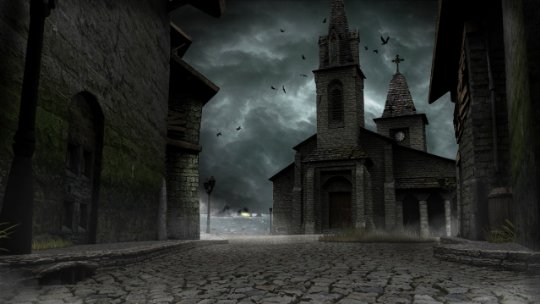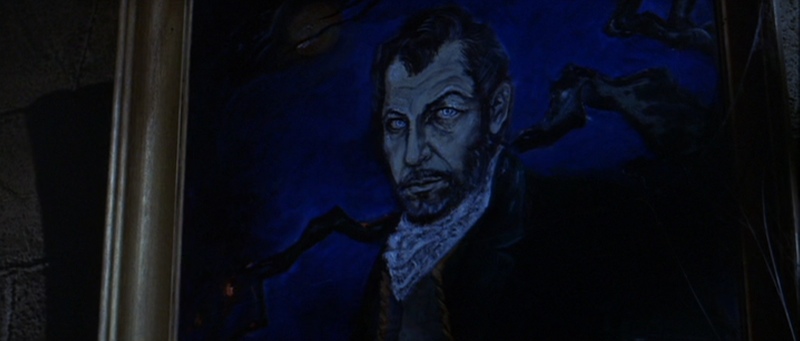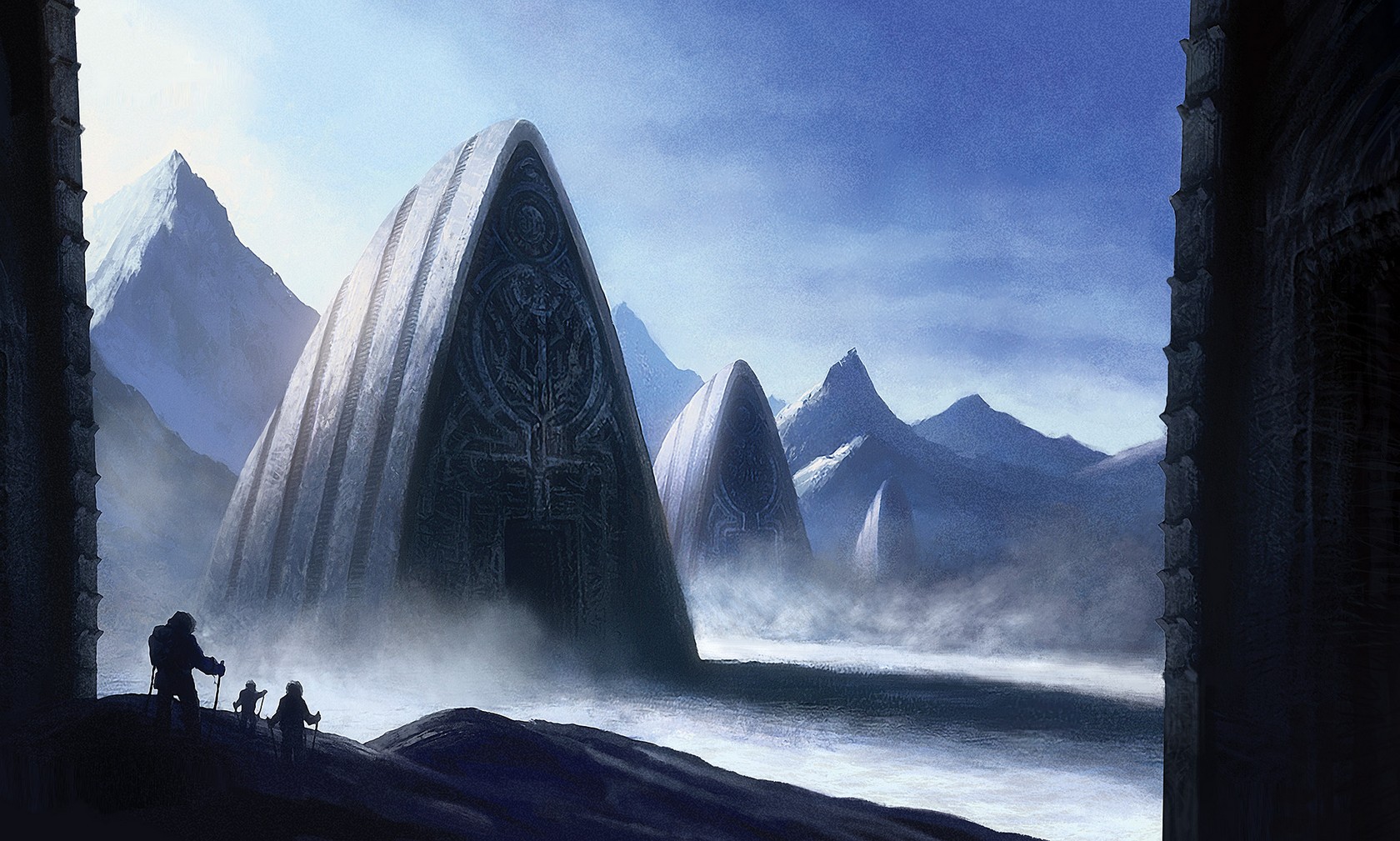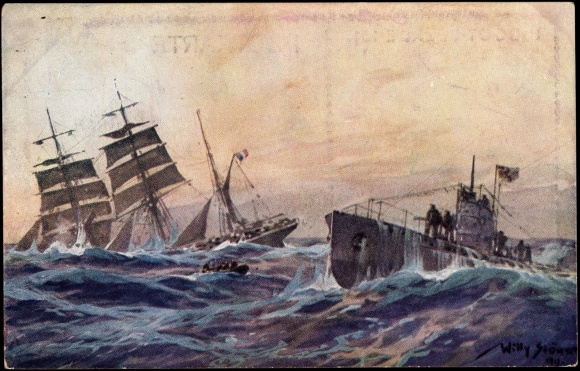Beyond the Wall of Sleep
 Sunday, July 30, 2017 at 19:01
Sunday, July 30, 2017 at 19:01  An old rule about short fiction asserts that a story should not quote its title because it will have a false clang (even more true of a film as those being filmed should not be aware that they have an audience). While numerous great works defy such wisdom – those whose main character gets top billing do not really count in this regard – the sentiment contains more than a few kernels of truth. Philosophy, as many who don't understand a lick of it have said, is a pursuit of the rich. The put-upon, the oppressed, and the marginalized have no time for the distant diatribes of the ivory tower. How could the meaning of the universe or even simply earthbound life resonate with those who struggle for daily necessities? Yet in stories of horror, incorporating the title verbatim into the narrative does not result in a wooden echo, but an omen. It becomes a chant, a legend, a premonition of unspeakable evil prophesied in riddles and warnings which any normal, reasonable mind would interpret as unbesought mercy. And despite all good sense to the contrary, we see another learned man lured into the fantastic in this story.
An old rule about short fiction asserts that a story should not quote its title because it will have a false clang (even more true of a film as those being filmed should not be aware that they have an audience). While numerous great works defy such wisdom – those whose main character gets top billing do not really count in this regard – the sentiment contains more than a few kernels of truth. Philosophy, as many who don't understand a lick of it have said, is a pursuit of the rich. The put-upon, the oppressed, and the marginalized have no time for the distant diatribes of the ivory tower. How could the meaning of the universe or even simply earthbound life resonate with those who struggle for daily necessities? Yet in stories of horror, incorporating the title verbatim into the narrative does not result in a wooden echo, but an omen. It becomes a chant, a legend, a premonition of unspeakable evil prophesied in riddles and warnings which any normal, reasonable mind would interpret as unbesought mercy. And despite all good sense to the contrary, we see another learned man lured into the fantastic in this story.
Our narrator identifies himself only as an intern in "the state psychopathic institution," the state in question being New York since we will be patrolling these mountains. Literary doctors always need literary patients, otherwise they cease to be of any interest at all, and our narrator's subject was foisted upon him by chance itself:
His name, as given on the records, was Joe Slater, or Slaader, and his appearance was that of the typical denizen of the Catskill Mountain region; one of those strange, repellent scions of a primitive colonial peasant stock whose isolation for nearly three centuries in the hilly fastnesses of a little-travelled countryside has caused them to sink to a kind of barbaric degeneracy, rather than advance with their more fortunately placed brethren of the thickly settled districts .... This man, a vagabond, hunter, and trapper, had always been strange in the eyes of his primitive associates. He had habitually slept at night beyond the ordinary time, and upon waking would often talk of unknown things in a manner so bizarre as to inspire fear even in the hearts of an unimaginative populace. Not that his form of language was at all unusual, for he never spoke save in the debased patois of his environment; but the tone and tenor of his utterances were of such mysterious wildness, that none might listen without apprehension. He himself was generally as terrified and baffled as his auditors, and within an hour after awakening would forget all that he had said, or at least all that had caused him to say what he did.
As well it should be forgotten, since Slater will commit a hideous crime against a man called Slader, a likely cousin amidst all this "degeneracy," and leave behind "an unrecognisable pulp-like thing." Acquitted of murder on grounds of insanity, Slater, an illiterate who "had apparently never heard a legend or fairy tale," will come under the examination of our fascinated narrator. Fascinated by what, you ask? By the fact that Slater's visions imply an ocular homologue of glossolalia, of sights his dim realm could not possibly know. Our intern explains:
The man himself was pitiably inferior in mentality and language alike; but his glowing, titanic visions, though described in a barbarous and disjointed jargon, were assuredly things which only a superior or even exceptional brain could conceive. How, I often asked myself, could the stolid imagination of a Catskill degenerate conjure up sights whose very possession argued a lurking spark of genius? How could any backwoods dullard have gained so much as an idea of those glittering realms of supernal radiance and space about which Slater ranted in his furious delirium? More and more I inclined to the belief that in the pitiful personality who cringed before me lay the disordered nucleus of something beyond my comprehension; something infinitely beyond the comprehension of my more experienced but less imaginative medical and scientific colleagues.
Experience has a rather unfortunate tendency to diminish imagination, and not only that of otherwise blithe and hopeful scientists. One wonders whether our intern would have been so keen on learning the secrets housed in Joe Slater's terrestrial form had his fellow boffins been more receptive to those "great edifices of light, oceans of space, strange music, and shadowy mountains and valleys." He does not relent in his aims, which means that he will have his chance alone with his "barbarian" of a patient, should that really be Joe Slater behind those blue eyes.
Lovecraft was a stylist of indefinite genius often waylaid by his own nightmares and henchmen. And while the detail he lends his descriptions bespeaks the idolater, it is perhaps even more impressive that no one could ever deem his krakens and godlets familiar. How can prose convey the eerie sensations that linger in the crevasses of a sleep-flushed brain, how can wickedness in its most awesome manifestations possibly jostle our spines? The monsters of most horror tales are but ghoulish parodies of homines sapientes: it is through our own reflections, our solipsistic urgings, that we imagine life corrupted and distorted. But what if we heard a voice insist, Watch me in the sky beside the Daemon-Star, what then? Would we, akin to our ever-curious narrator, be so inclined as to gaze upon the firmament in search of signs and wonders? Not if our idea of fun is a "plain tale of science," and our reaction merely a dismissive shrug of the shoulders.




